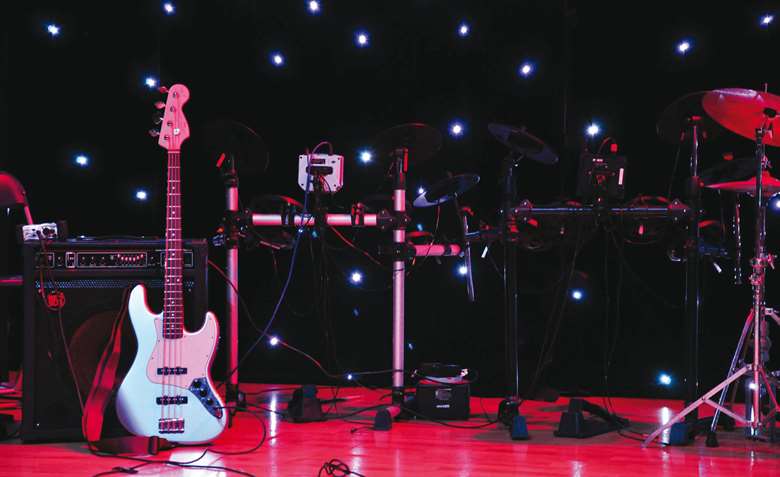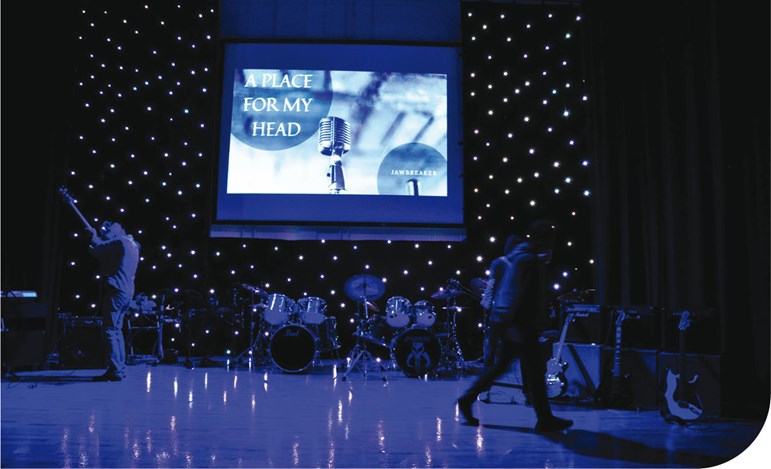Leading the way: Vocational qualifications
Patrick Healy
Wednesday, July 1, 2020
As entry numbers for GCSE and A Level music continue to decline, there are some assessments that are gaining popularity. Patrick Healy from RSL Awards puts forward the case for vocational qualifications.

The ISM's recent report ‘Music education: state of the nation’ lays out the erosion of GCSE and A Level entry numbers for music year on year – the Department for Education's (DfE) data shows a fall of over 20 per cent in GCSE music entries since 2014/2015, while secondary school music teacher numbers have fallen by over 1,000 in the same period; at a time when EBacc subjects are seeing teacher numbers rising. It is not unreasonable to assume that following the partial reopening of schools this summer, music may fall even further down the agenda as schools focus efforts on a skeleton timetable.
Amid the doom and gloom around GCSE and A Level entries, certain vocational qualifications (VQs) have seen a rise in popularity, including RSL Awards's (formerly known as Rock School) range. RSL's VQs are practical in focus, built around industry relevant disciplines that learners can gain tangible experience of through completing units in Performing, Composition, Business, Production and Live Events. Many music teachers report that in their schools there may be 30 or 40 learners who would like to opt for music but only 10 or 15 who can realistically access the GCSE option. Many of these learners can play and perform effectively or produce music at home but are either disengaged by the GCSE curriculum or deemed not to be of the correct graded level to be a viable entry for the traditional qualification.
RSL now works with over 450 schools and colleges. Our qualifications contribute to DfE performance measures at Levels 1, 2 and 3 (L1-3) and we see countless schools where results improve vastly due to the fact learners are fully engaged in what they are doing.
‘Clifton Community School serves an incredibly diverse community with pupils from all kinds of backgrounds and ethnicities, many of whom are amazing musicians. The challenge we had was that the more traditional curriculum offered by GCSE Music was not accessible or relevant to the majority of our pupils. We were letting them down,’ says Claire Maud, head of performing arts at Clifton Community School in Rotherham. ‘In 2014 I discovered the RSL Certificate in Performance for Music Practitioners and it totally transformed the department. Pupils now think like musicians and actively engage in their musical development. They can see a clear purpose, as everything we do prepares them for that final performance for the controlled assessment in Year 11 – we run this as a series of real concerts and invite friends and family to watch. Pupils are more resilient and confident in their abilities, and the number of pupils progressing to study music at college has increased.
‘In terms of data, Pupil Progress has improved dramatically and department residuals have been in the top 3 in school for the last 4 years. RSL assessment focuses on what the pupils can do, rather than penalising them for what they can't. We now offer L1 and L2 Music Performance, L2 Technology and Composition and L2 Creative and Performing Arts – Acting. Staff and pupils really enjoy the RSL VQs and they have allowed us to tailor our curriculum provision so that it is relevant, accessible and purposeful to all our pupils, enabling them to be the best they can be.’
There is a similar tale of increasing uptake and improved results at Monks Walk School in Hertfordshire, according to head of music Jennifer Rotchell: ‘We have been running the RSL Music Practitioner Certificates at Monk's Walk School for five years. Teachers find the External Quality Assurance process positive and supportive and students really enjoy the course. Uptake of music at KS4 has doubled since the introduction of the course. In year 11 this represented over one third of the cohort taking a music option. Students who opt for the course are able to take either the performance or composition and technology pathways. We are able to teach both pathways in the same class as a result of the cross-over units. The external assessments are appropriate and provide students with an enjoyable and bona fide outcome at the end of the course that they are always proud of.’
These larger cohorts may encompass learners from a range of musical backgrounds, and contrary to some understandings of VQ, classical and other genres of music are not inappropriate for use in conjunction with RSL's specifications. No units within any of our qualifications are genre or instrument specific, and all are open to participation from musicians and producers of all types.

Actively engaged: Clifton Community School's musicians
If you would like to find out more about RSL's portfolio of Vocational Qualifications visit rslawards.com/vocational or contact RSL at vocational@rslawards.com

